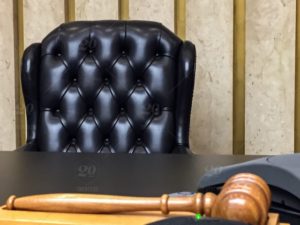Artificial Intelligence Generated Hallucinations
 In an August 14, 2025 decision, the U.S. District Court for the District of Arizona considered the Counsel for the Plaintiff (Counsel) response to its Order to Show Cause regarding Plaintiff’s Opening Brief that had included citation deficiencies “consistent with artificial intelligence generated hallucinations.”
In an August 14, 2025 decision, the U.S. District Court for the District of Arizona considered the Counsel for the Plaintiff (Counsel) response to its Order to Show Cause regarding Plaintiff’s Opening Brief that had included citation deficiencies “consistent with artificial intelligence generated hallucinations.”
Plaintiff filed a complaint in February 2025 and later an Opening Brief with the Court in May 2025 through her Counsel. A review of the Opening Brief by the Court resulted in the issuance of an Order to Show Cause to determine why sanctions should not be issued under the Federal Rules of Civil Procedure, Rule 11. Rule 11 requires that the signature on a filing “certifies to the court that the signer has read the document, has conducted a reasonable inquiry into the facts and the law and is satisfied that the document is well grounded in both, and is acting without any improper motive.” See Bus. Guides, Inc. v. Chromatic Commc’ns. Enters., Inc., 498 U.S. 533, 542, 111 S. Ct. 922, 112 L. Ed. 2d 1140 (1991).
Counsel responded to the Order and acknowledged “full responsibility for all filings submitted in this matter.” The explanation for the preparation of the brief indicated that drafting and research was assigned to a qualified attorney-contractor, who was relied upon based upon the attorney-contractor’s professionalism and prior performance. Prior to preparation of the brief, the attorney-contractor acknowledged receipt of an announcement by the U.S. District Court of Mexico regarding the use of AI, which applied to all jurisdictions. The attorney-contract drafted the Opening Brief, which was reviewed by a supervisor. There was no intention of misleading the Court, and a new procedure to prevent recurrence was identified.
The primary issue in this review was that a determination was made that the Opening Brief cited legal precedent, and a majority of cases cited “either did not exist, did not support the proposition for which they were cited, or misquoted or miscited the authority” and resulted in Counsel citing citations that were “fabricated, misleading, or unsupported.” It appeared that some of the cases were “artificial intelligence hallucinations.” See United States v. Hayes, 763 F. Supp. 3d 1054, 1065 (E.D. Cal. 2025). The Court provided the opportunity to be heard for the Counsel and determined a violation of Rule 11 occurred and allowed the Court “wide discretion in determining the appropriate sanction.” The Court emphasized that AI may be responsibly used; however, the “pitfalls of utilizing AI are now well-known in this profession.” See Johnson, 2025 U.S. Dist. LEXIS 141805.
In considering the appropriate sanction, the conduct in this matter, and sanctions imposed in similar matters, the Court considered what sanction would be sufficient under Rule 11. The Court weighed the conduct in this case, sanctions imposed in other matters, and the need for future deterrence, while also acknowledging the more robust procedures implemented at the law firm. As a result, the Court revoked the pro hac vice status of Counsel, Counsel was removed from the case, the Opening Brief was stricken, and Plaintiff was given time to engage new counsel. Further, Counsel was required to write correspondence to the three (3) judges “to whom she attributed fictitious cases” and notify them of her conduct and to provide this order to every Judge who presides over any case where Counsel is attorney of record; and the Order will be served to the Washington State Bar Association, and Counsel shall provide it to any other state bar of which she is a member.
Sanctions imposed as noted.

